Lithium Geopolitics There’s no doubt that the recent discovery of lithium reserves is already strengthening India’s needs, economy and position in global politics.
often referred to as White Gold, Lithium is a rare element constituting a mere 0.0007% of Earth’s crust. Lithium is seen as the future of clean energy, essential for the production of lithium-ion batteries and an important element for pharmaceuticals, military, and electronics.
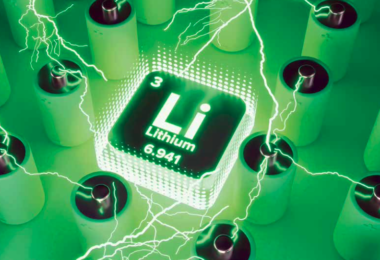
Lithium battery is to the EV ecosystem what semiconductor chips are to the electronics ecosystem.
Both are parts of the final product and not the product itself.
Both are extremely critical to the final product. And their shortage can bring respective ecosystems to a standstill, stagnating the world’s technological advancement.
In order to make the world sustainable, a shift to clean energy would witness a surge in the energy-storing industry in which lithium will have a pivotal role. The prominence of lithium will define its fate in the future and even start having some effects on the environment. Soon, it may become an agenda of discussion on international platforms. Lithium, for now, is precious.
The future of the world and its peace will be determined by the scramble for lithium. Lithium may not be the panacea for all ills, but it is extremely precious for now. As lithium continues to be used and misused, soon, there will be a new scenario related to its effects on the environment and a different narrative emerging from it.
Lithium triangle is where the majority of the world’s lithium reserves are located with 50 per cent of the deposits concentrated in three South American countries— Argentina, Bolivia, and Chile.
Lithium battery is to the EV ecosystem what semiconductor chips are to the electronics ecosystem.
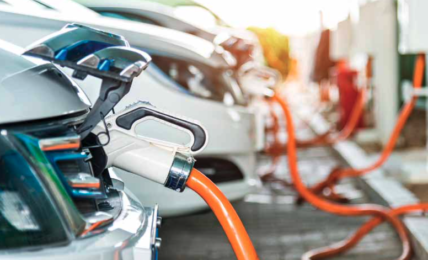
China, on the other hand, has an advantage over other nations and is in-charge of 75 percent of the world’s lithium refining. China is also a hub of EV manufacturing, being an ideal location for production for valuable private companies like Tesla and Volkswagen.
India
India has an estimated requirement of about 80,000-140,000 tonnes of lithium in the next two to three years. This could even increase if EV production is ramped up.
Electric two-wheeler penetration is expected to account for a minimum of 60 per cent by 2030.
For electric three-wheelers, four- wheelers, and heavy commercial vehicles, it is likely to be 40 percent, 10 per cent and 5 percent, respectively, according to McKinsey & Company. India’s electric vehicle manufacturing can be handicapped without lithium batteries.
The link to join the course : Online Courses
As the Center is promoting the adoption of electric vehicles (EVs), demand for lithium-ion batteries has grown exponentially. The centre announced `18,000 crore production-linked incentive scheme for advanced chemistry cell (ACC) battery storage, due to which the industry is witnessing a decline in imported products.
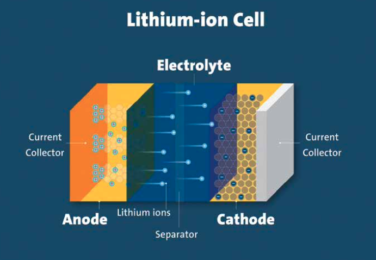
India has been at odds with a major import source for the mineral, China. India needs to develop its electronic industry as well as its electricity storage business to be of some significance in the world electric and electronics market.
India has been scouting for lithium reserves as the mineral is a key component of lithium-ion batteries, the demand for which has surged amid the centre’s push to boost the adoption of electric vehicles (EVs) in the country. The `18,000 crores production-linked incentive scheme for advanced chemistry cell (ACC) battery storage, a flagship incentive scheme for the industry, has kicked off, and the supply of lithium, which is largely an imported product, has declined. With India being in a diplomatic tussle with China, the supplies from the neighbouring country have declined, and India, too, is looking for other import avenues.
The unavailability of lithium has been one of the reasons why India has been dependent on other countries and has imported 100 per cent of its needs. As per government figures, India imports 173 crores of Li from Australia, Chile and Argentina. For Li-Ion batteries, India pays worth of $1 billion, most of which goes to China. Lithium being one of the core elements of Li-Ion batteries.
India is dependent on imports for lithium as production in the country is minimal. India was importing the by-product, lithium- ion batteries, majorly from China.
The future of the world and its peace will be determined by the scramble for lithium
Lithium Imports
Australia is one of the largest exporters of lithium to India and was the largest lithium producer in 2021. Australia primarily extracts the alkali metal from spodumene, a lithium-bearing mineral.
India is searching for domestic reserves and looking for newer countries to source the mineral. Recently, India committed to jointly invest $6 million with the Australian government to explore lithium and cobalt mines there over the next six months. Khanij Bidesh India Ltd (KABIL) has signed a preliminary agreement with Australia’s Critical Minerals Facilitation Office. In 2020, KABIL also signed a pact with an Argentine firm to jointly explore lithium in the South American country.
A new development basking on the glory of India’s soft power and its goodwill has been Africa. African countries weary of nefarious Chinese intent stung by its BRI have pledged themselves to supply lithium. The geographical advantage of Africa makes it a resourceful continent, maybe the richest continent in future. African nations have rich deposits of minerals which could give India access to mineral and metal ores such as magnesium ore, nickel ore, zinc, lead, quartz, limestone, alumina, iron ore, copper, and bauxite.
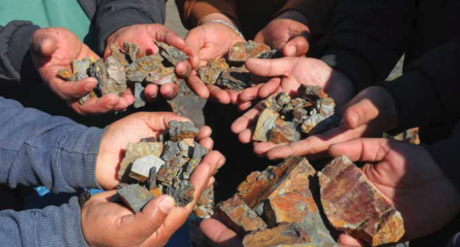 Apart from Australia and Africa, India has also explored Central Asian countries, Bolivia, and Russia to obtain minerals like coking coal supplies for Indian steel companies.
Apart from Australia and Africa, India has also explored Central Asian countries, Bolivia, and Russia to obtain minerals like coking coal supplies for Indian steel companies.
India had a lot to gain here as India has not followed a debt trap diplomacy, unlike the Chinese. African countries are somehow realising that the Chinese
create instability and then take advantage of it. India, on the other hand, has used its soft power
for the greater good. India has given a good amount of loans to African countries, and the only condition has been that they have to buy Indian goods from Indian manufacturers.
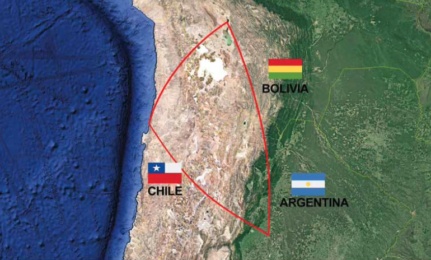
African countries, too, have realised the foul diplomacy of the Chinese
and their intent to create instability through the BRI project. African nations have pledged to supply lithium to Indian manufacturers and access to their mining operations and allowing exports of highly prized lithium and cobalt in exchange for loans.
India extends development assistance through concessional Lines of Credit (LoC) under the Indian Development and Economic Assistance Scheme (IDEAS). India extends concessional funds to overseas financial institutions, regional development banks, governments and other entities to help finance development and infrastructure projects or to import goods and services from India.
Several countries have offered to repay Exim Bank credit through output generated by a certain project or other minerals that India needs to support ‘Make in India’ and ‘Atmanirbhar Bharat’ initiatives.
Slimming down imports from China can benefit India in geopolitics, giving India leverage against China
Download Full Article Click Now
Source: Apr 2023 | Defence & Security Alert| K. Siddhartha
For more details :
Best Online Coaching for Civil Service_IAS_ UPSC_IFS_IPS, Free Study Material
ENSEMBLE IAS ACADEMY
Call +91 98115 06926
Visit us:- https://ensembleias.com/
Online Store: https://online.ensemble.net.in/
Email: ensembleias@gmail.com
#lithium #geopolitics #ksiddhartha #lithium-geopolitics
#lithium_reserves #discovery_of_lithium #lithium-battery #semiconductor #chips #ev




